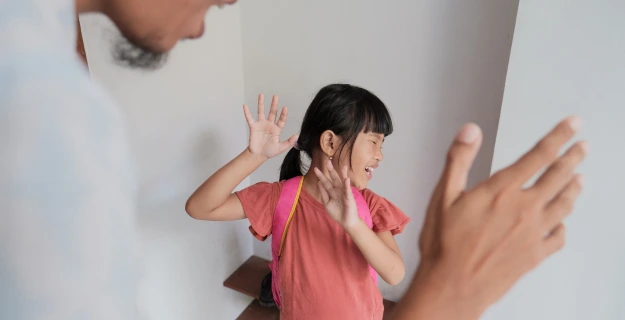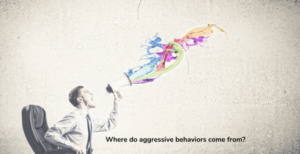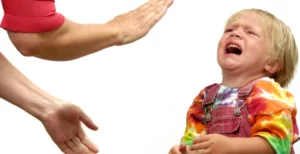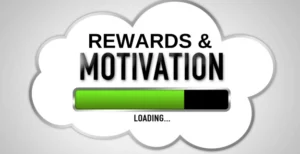Children respond to each parenting style differently. They aren’t born with survival tools, they build them as they grow and evolve. It is hard work! For instance, when a toddler learns to drop things and knows about gravity through basics, they find it fascinating. But what registers more is how the parent responds to that new learning.
If a parent happily celebrates, they will continue to repeat it, to drive attention. With it, they learn about joy and attention. They adapt.
With time through exploration, they experiment to throw other objects. If a parent responds fiercely and angrily due to dropping off a precious item, the child is stunned, and surprised by the reaction. The child then learns that it isn’t making the parent happy. It isn’t the same reaction and that isn’t acceptable behavior, possibly. They learn to adapt again.
Every single time, every day, they experience endless learning moments and try to decode and understand countless reactions from every adult around them! They are learning, growing, and compartmentalizing new behaviors based on one important cue, the response from the primary caretaker. Their reactions mean the world to them, an anchor toward understanding the big new world! Being a child is an overwhelming job!
Parents are anchors
Children are highly dependent on parents or primary caregivers to adapt and understand the surrounding environments, people, and places. As young children, then as adults, the experiences they receive strongly influence the way they make decisions, deal with hardships and approach life in general. A healthy environment encourages healthy habits and values while a toxic environment significantly affects their physical and mental well-being.
If a parent is compassionate, polite, considerate, and calm, the child sees the world through the same lenses. If a parent is restless, responds fiercely, is impolite, and is engaged in physical or mental gestures such as hitting, yelling, using inappropriate language, and spanking. Then children understand and view the world differently.
Action-Reaction-A simple correlation
It’s a simple correlation. Children act and view the world based on how they are being treated and the way they are attended to. They are highly observant and great imitators. They have the ability to grasp everything that is seen, felt, and experienced. The sense of right or wrong is weak, fragile, and mostly unexplored. If a child is experiencing hard parenting, then the child may grow up to be intolerant, aggressive, and have complex mental health issues.
Spanking Children- An Unending Debate!
Through many generations, spanking has been a probably preferred style of discipline, to teach values or acceptable behaviors in children. In fact, most of the parents of today do have spanking experiences while being a child. But, today, in many circles, it isn’t acceptable and is argued to be an incorrect form of discipline. In fact, many experts consider it to be having detrimental effects on children—not to mention ineffective.
The short answer is- It is a bad idea!
Here are the 4 reasons why?
1. Children learn that it is okay to hit and hurt– Most importantly, if children are spanked, they learn that physical aggression is an acceptable way to achieve, to be listened to, and to get the things they wish for. Here, a parent is purely modeling aggressive behavior.
2. Children learn that you are supposed to be good all the time– If children are spanked for wrongdoing as per an adult perspective. Fear creeps in. They build fear of being bad, incorrect, and wrong, the fear of not making mistakes or sharing mistakes. Refrain from learning new things, exploring new things with the fear of being wrong and then being spanked.
3. Learning never happens through spanking– Parents don’t need to spank, they need to find teaching opportunities! If a child is spanked for spilling milk, the child could never understand why they shouldn’t spill. When a child is spanked in that situation, a teaching opportunity to learn hand control to avoid spilling is lost!
4. Broken bit by bit– The effects of spanking are worrying. Bit by bit, every day if a child is spanked, it significantly affects the way they deal with situations. It might stop unwanted behavior from happening again, leaving difficult traces behind. Affects a child’s capacity to make decisions, increases self-doubt, and struggles to become independent. Struggles in emotional regulation, impulse control, self-awareness, and a strong sense of self.
What are the approaches one could apply instead?
1. Work on yourself!– If a parent or a primary caregiver is struggling to control impulses, manage anger, and experience difficulties in dealing with stressors, then it is important to work on self first, to evaluate and change the ways in response. Build patience and coping skills.
2. Use words– Hands are not for hitting or hurting! Make it a family rule, strictly abide by it. Model behaviors that act as tools. Use words, take the opportunity to explain, and teach values through words and positive actions.
3. Talk about consequences, and reward positive behavior– ‘If you do this, that will happen.’ Simple explanations help children to understand behaviors. It will also reduce unnecessary drama. Avoid over explanations, use examples and stories. Appreciate the behaviors, and scrap the concept of good girl/boy and bad girl/boy.
4. Give time to process the changes they grow through– Learning occurs along with trial and error, some pitfalls, mistakes, and tantrums. It’s a part of growing. Try to embrace your child’s growth and help them to define themselves.
Discipline comes with modeling appropriate behaviors by stakeholders, setting boundaries, using words, talking about consequences, and keeping our hands to ourselves! Hands are for art, to share love, to play, and grow!
Cheers!
Happy Parenting!





